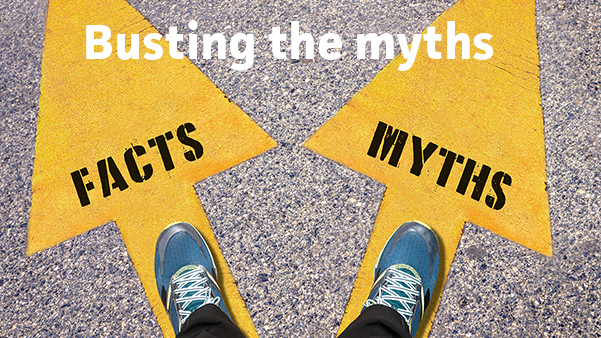Top Five Endometriosis Myths Reported to FTWW:
1) You’re too young to have endo.
The cause of endometriosis is still fairly mystifying – but there seems to be evidence that it is present from before birth and that it’s hormones which trigger symptoms. If a girl enters puberty at age 11, it’s not unreasonable to see her developing endo symptoms at that same age, or even earlier in some instances.
2) Pregnancy is a cure for endo.
Whilst many women will experience relief of symptoms during pregnancy, many will not. Even those who find their symptoms temporarily suspended will normally have them resume soon after giving birth or stopping breastfeeding. Some women report that their symptoms are actually worse after having their baby. More here!
3) It’s just bad periods.
If a girl’s / woman’s periods are very heavy and painful, causing her to regularly bleed through sanitary products, miss school, work, and be unable to lead a normal life, that isn’t acceptable and needs investigating. As well as endo, another condition called adenomyosis (similar to endo but inside the walls of the uterus) might be involved. Many women with endometriosis report that their pain and other symptoms last throughout the month and not just at the time of their periods.
4) It’s just Irritable Bowel Syndrome (IBS). You need to change your diet and relax more.
Whilst stress can exacerbate symptoms, many women find that having pain and other distressing symptoms (like heavy periods, fatigue, constipation, diarrhoea, pain on urinating, and painful sex) can actually cause them stress, anxiety, and depression. It isn’t necessarily helpful just to tell them to relax. IBS (constipation / diarrhoea / bowel spasms) is a name for a set of symptoms more than a diagnosis. Endo on / in / near the bowel can cause these symptoms. Changing one’s diet to bland foods or to reduce inflammation can help some patients – but it can also end up being very restrictive and not always ease symptoms.
5) You’ll be fine if you have a hysterectomy.
A hysterectomy is the removal of the uterus. By definition, endo is outside of the uterus so removing that organ will only reduce pain if the cause of it was coming from within the uterus (such as adenomyosis). Many patients are told that removing their ovaries (oophorectomy) will cure them of the disease because hormones will be reduced. However, endo does have the capacity to produce its own hormones so some women will continue to experience symptoms even if they have all of their reproductive organs removed. In addition, losing one’s ovaries can have long-term health implications. It is far better to remove (excise) all endo than to remove organs. Here’s a good article about this!


 English
English
